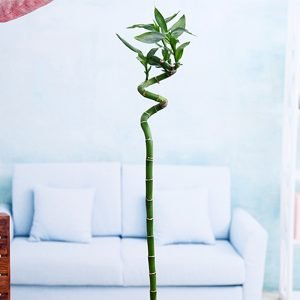No products in the cart.
All Plants, Bonsai, Gift Pack, Gift Section, Indoor Plants
PEEPAL TREE BONSAI , Ficus religiosa
1)Name of Plant ( common Name/ scientific name)- PEEPAL TREE BONSAI/ Ficus religiosa
2) Type of plant (Indoor/outdoor)- Indoor
3) Size of pot it comes in- 5 inches
4) Seasonal/ perennial- Perennial
5) Flowering/ Foliage- Foliage
6) Place to keep- Bright indirect or filtered sunlight
Availability:
Out of stock
₹1,260.00 ₹2,000.00
Out of stock
- All Plants, Bonsai, Gift Section, Indoor Plants
BANYAN TREE BONSAI , Ficus tree
1) Name of Plant ( common Name/ scientific name)- Banyan tree / Ficus
2) Type of plant (Indoor/outdoor)- Outdoor
3) Size of pot it comes in- 5 inches
4) Seasonal/ perennial- Perennial
5) Flowering/ Foliage – Foliage
6) Place to keep- Bright indirect lightSKU: n/a
₹3,920.00 for 3 item(s)
Peepal Tree Bonsai
About Peepal Tree Bonsai
The ficus, also known as the Peepal tree bonsai, is a diverse genus that includes trees, shrubs, and vines thriving across tropical regions worldwide. While most ficus species are evergreen, some deciduous varieties flourish in non-tropical and higher elevation environments. Moreover fig plants are not able for their unique inflorescence and specialized pollination involving wasps from the Agaonidae family. As cherished members of the fig family, ficus trees are favored choices for indoor cultivation, with various species like ficus benjamina (weeping fig), ficus lyrata (fiddle leaf fig), and ficus elastica decora (rubber tree) widely grown as houseplants.
Furthermore ficus plants exhibit a wide range of forms, including large trees, woody shrubs, and trailing vines, making them popular for home decoration. Belonging to the genus Ficus, which encompasses approximately 900 species, these plants originate primarily from tropical East Asia but are now found across tropical regions worldwide. Many ficus species are majestic forest giants supported by sprawling roots, while others are prized for their ornamental value. In Addition the ficus tree, a perennial favorite, belongs to the fig family and enjoys popularity as a houseplant.
Indoor varieties such as ficus benjamina, ficus lyrata, and ficus elastica decora are particularly favored. Besides legend has it that the Bodhi tree, often considered a ficus religiosa, provided the shade under which Buddha attained enlightenment. Among these indoor varieties, ficus benjamina remains particularly beloved.
Plant Specifications
*above specification are indicative only. actual dimensions may vary by +-10%
| Common Name | Ficus |
| Maximum Reachable Height | upto 2 feet |
| Bloom Time | The flowers are inconspicuous and the plants are grown mainly for their foliage |
| Difficulty Level | easy to medium |
Planting And Care
Ficus plants are sensitive to cold drafts from windows or doors, so it’s essential to position them in places where drafts won’t affect them. The most common issue with ficus plants is leaf loss, which can occur due to various forms of stress. In addition this includes factors such as underwatering or overwatering, low humidity levels, insufficient light, relocation or repotting, drafts, and fluctuations in temperature (either too hot or cold). Furthermore if you notice your ficus shedding leaves, carefully review these aspects of care and address any issues you identify to ensure the plant’s health and vitality.
Peepal Tree Bonsai Care
| Sunlight | Most ficus tree bonsai enjoy bright indirect or filtered light with variegated varieties happily able to take medium light. Bright, direct light may result in scalding of the leaves and leaf loss. |
| Watering | When watering, always check the top of the soil first. If the top of the soil is wet, do not water as this means they have enough moisture. Moreover if the top of the soil feels dry to the touch, this indicates that they need water. |
| Soil | Rich, humusy and well-drained soil. |
| Temperature | Ficus trees also cannot tolerate low temperatures or drafts. Also they need to be kept in temperatures above 60 F. (16 C.) and actually prefer temperatures above 70 F. (21 C.). |
| Fertilizer | Feed with slow-release pellets in the beginning of the growing season. Besides fertilize once a month in the spring and summer and once every two months in the fall and winter. |
Peepal Tree Bonsai Special Feature
Most ficus bonsai trees have the ability to develop aerial roots in their natural habitats, a feature often showcased in captivating bonsai designs that feature numerous aerial root pillars or the striking root-over-rock style. However, replicating this growth indoors requires artificially achieving nearly 100% humidity. Methods such as using a glass cover, fish tank, or constructing a structure with transparent sheets can help create this environment. The Bodhi tree, traditionally believed to be a ficus religiosa, holds cultural significance as the tree under which Buddha attained enlightenment. Fig species are renowned for their distinctive inflorescence and unique pollination process, which involves specialized wasp species from the Agaonidae family.
Peepal Tree Bonsai Uses
Ornamental Use:
- In Addition the peepal tree bonsai can maintain their tree-like shape regardless of their size and so this makes them ideal for bonsais or for massive houseplants in large spaces
- The plant is used for ornamental purpose
- Also it’s generally keep indoor in living room and in terrac area
Culinary Use:
- The common fig (Ficus carica) is cultivated for its pear-shaped, edible fruits, which are really hollow fleshy receptacles (syconia) containing hundreds of male and female flowers
Disclaimer : The image is for reference purposes only. The actual product may vary in shape or appearance based on climate, age, height, etc. click here .
Based on 0 reviews
Be the first to review “PEEPAL TREE BONSAI , Ficus religiosa”
You must be logged in to post a review.













There are no reviews yet.